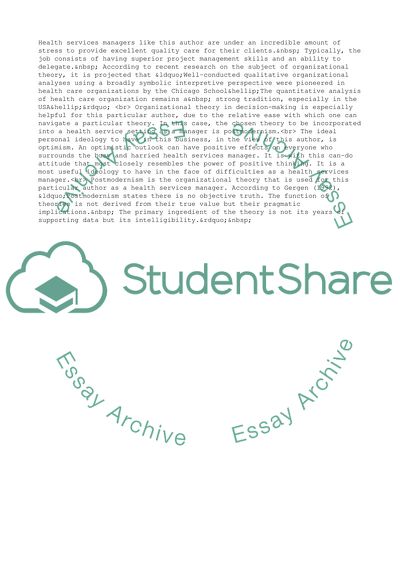Cite this document
(Public Health: A Health Service Managers Organizational Theory, Term Paper, n.d.)
Public Health: A Health Service Managers Organizational Theory, Term Paper. Retrieved from https://studentshare.org/management/1728166-pbh7323-publicc-health
Public Health: A Health Service Managers Organizational Theory, Term Paper. Retrieved from https://studentshare.org/management/1728166-pbh7323-publicc-health
(Public Health: A Health Service Managers Organizational Theory, Term Paper)
Public Health: A Health Service Managers Organizational Theory, Term Paper. https://studentshare.org/management/1728166-pbh7323-publicc-health.
Public Health: A Health Service Managers Organizational Theory, Term Paper. https://studentshare.org/management/1728166-pbh7323-publicc-health.
“Public Health: A Health Service Managers Organizational Theory, Term Paper”, n.d. https://studentshare.org/management/1728166-pbh7323-publicc-health.


